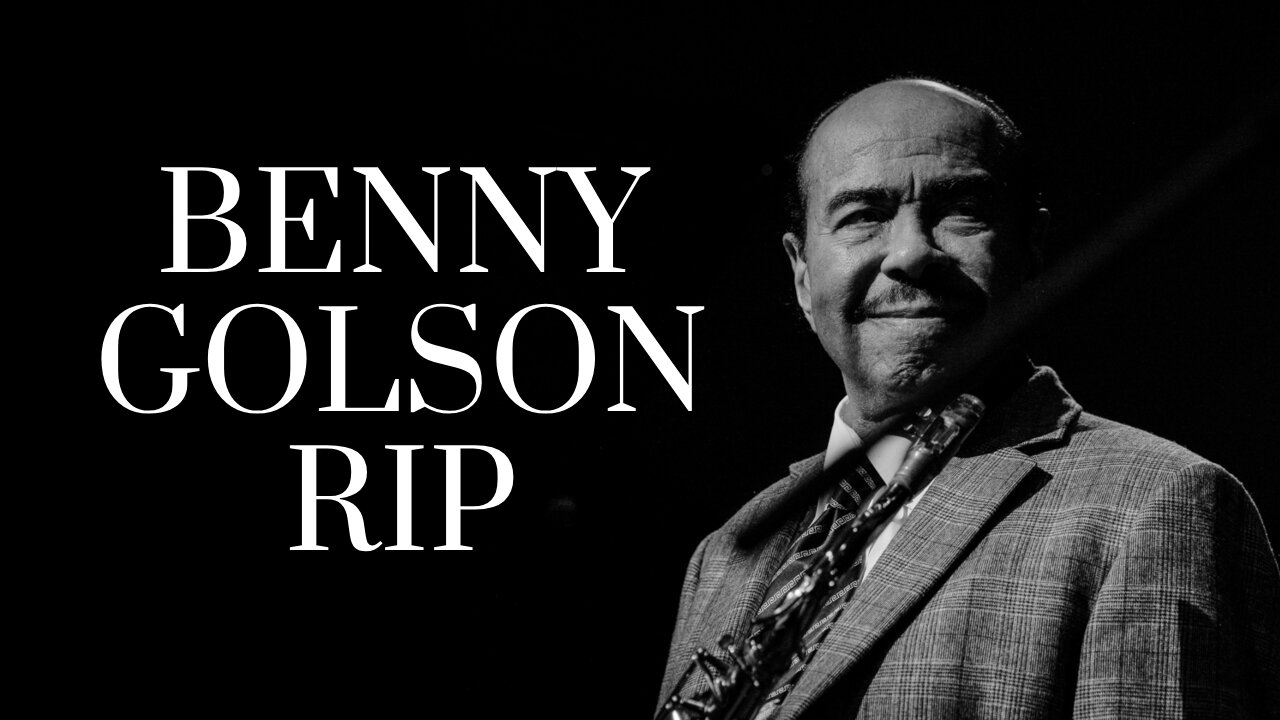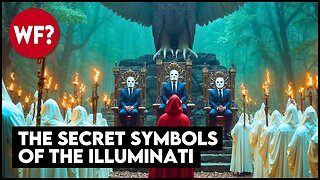Premium Only Content

Benny Golson, The Jazz Legend Who Shaped Bebop Forever has passed away aged 95
Benny Golson, a legendary saxophonist known for his rich tenor sound and timeless contributions to jazz, passed away at the age of 95 at his home in Manhattan after a short illness. Golson was not only a master of his instrument but also a prolific composer whose works have become essential standards in the jazz repertoire. His compositions like “Whisper Not,” “Stablemates,” “I Remember Clifford,” “Along Came Betty,” “Killer Joe,” and “Blues March” are cornerstones of jazz.
Born in Philadelphia on January 25, 1929, Golson grew up surrounded by future jazz icons, including John Coltrane, with whom he shared a close friendship. His musical journey began during his high school years, where he was part of a talented group that included Percy Heath, Ray Bryant, and Philly Joe Jones. Inspired by the bebop revolution led by Charlie Parker and Dizzy Gillespie, Golson quickly found his voice in the world of jazz.
Golson’s career took off as a member of prominent bands led by figures like Tadd Dameron, Bull Moose Jackson, Lionel Hampton, and Earl Bostic. His stint with Art Blakey’s Jazz Messengers in the late 1950s further solidified his reputation. Though his time with the Messengers was short, it resulted in classic recordings, including the Blue Note album Moanin’, which featured his compositions “Along Came Betty” and “Blues March.”
In 1959, Golson co-founded the influential group The Jazztet with trumpeter Art Farmer. The group’s debut album, Meet the Jazztet, featured young talents like McCoy Tyner and Curtis Fuller, and it became a defining project in the hard bop movement. Over the years, The Jazztet became a breeding ground for top jazz musicians and continued to evolve with various lineups, including figures like Cedar Walton and Tootie Heath.
Despite his success as a performer, Golson’s talents as a composer and arranger took him to Hollywood in the 1960s, where he composed music for popular TV shows like MASH*, Mission: Impossible, and Mannix. This move distanced him from the jazz world for over a decade, but he returned to performing in the mid-1970s. The revival of The Jazztet in the 1980s, along with his continued performances, ensured that Golson remained a vital figure in jazz for decades.
In addition to his remarkable career as a performer and composer, Golson is one of the musicians immortalized in the iconic 1958 photograph “A Great Day in Harlem.” He was also featured in Steven Spielberg’s 2004 film The Terminal, in which he played himself in a climactic scene with Tom Hanks. Golson received numerous accolades during his life, including being named an NEA Jazz Master in 1996 and receiving a Guggenheim Fellowship.
Golson’s sophisticated compositions, marked by their strong melodic content, remain beloved in the jazz world. As he once said, “I had a love affair with melodies,” a sentiment that defined his musical legacy. His music has been interpreted by generations of jazz musicians, and his ability to blend complex harmonies with captivating melodies made him one of the greatest composers of modern jazz.
Music by Yevhen Onoychenko from Pixabay
-
 39:01
39:01
The Why Files
8 days agoSymbols of Power: Deciphering the Language of the Secret Elite
27.2K49 -
 45:17
45:17
The Officer Tatum
3 hours agoLIVE: Scott Jennings INCINERATES CNN, DNC Union BEGS For Money, + MORE | OT Show EP 15
11.2K11 -
 29:44
29:44
Standpoint with Gabe Groisman
5 hours agoEP. 59. The State of Western Militaries Today. Col. Richard Kemp
3.88K -
 47:24
47:24
Candace Show Podcast
1 hour agoConor McGregor: GUILTY—But Of What? | Candace Ep 111
14.5K30 -
 1:19:57
1:19:57
Awaken With JP
5 hours agoThanksgiving for America Special - LIES Ep 67
69.1K19 -
 3:58
3:58
Blackstone Griddles
22 hours agoLeftover Turkey with White Country Gravy
12.5K1 -
 42:19
42:19
Lights, Camera, Barstool
8 hours agoDoes 'Glicked' Meet The Hype? 'Gladiator II' And 'Wicked' Reviews
11.9K2 -
 LIVE
LIVE
MTNTOUGH Fitness Lab
2 hours agoRandy Newberg's Shot of a Lifetime: The Intense 5-Second Window for a Trophy Ram | MTNT POD #91
136 watching -
 LIVE
LIVE
World Nomac
9 hours agoThe side of Las Vegas they don't want you to know about
182 watching -
 DVR
DVR
TheSaf3Hav3n
2 hours ago| CALL OF DUTY: BLACK OPS 6 - NUKETOWN | GET IN HERE!! | #RumbleTakeOver |
9.65K